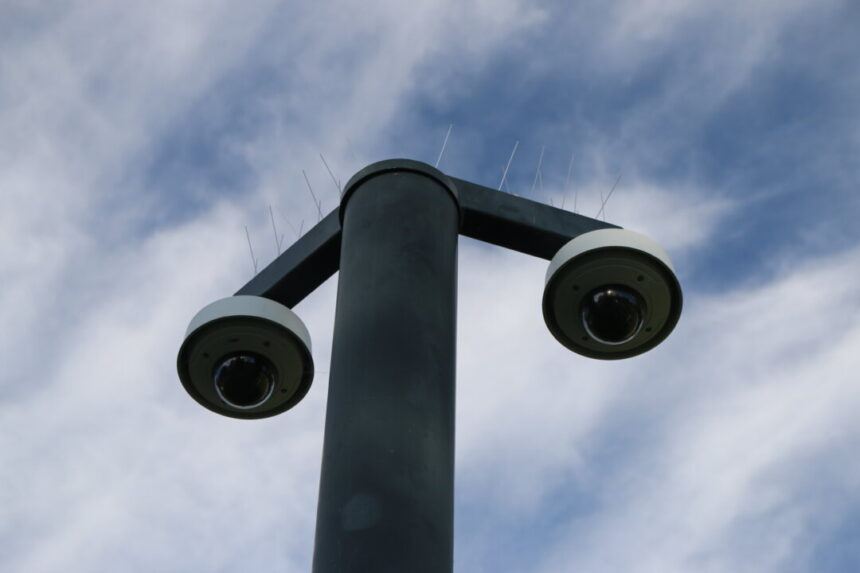Commentary
According to attorney Reilly Stephens from the Liberty Justice Center in a September interview, “Twentieth-century Fourth Amendment law was really written for a world before computers. It was literally written before any kind of modern computers—certainly before cell phones and all those things—and there were these assumptions built into the law that were really based around resource constraints.”
“[Samuel] Alito talks about this in his concurrence in Jones …” said Stephens, referring to a 2012 Supreme Court case regarding the placement of a GPS tracking device on a car by law enforcement. “[Alito] says it used to be we said the cops can watch anything you do in public because if you’re in public you don’t have any expectation of privacy.”
Stephens explained that any privacy Americans thought they had in public before the age of modern computers and connected devices came from resource constraints. He noted that law enforcement used to rely on physical surveillance, where a cop would physically follow a suspect, indicating a reason to suspect them.
However, with the advent of modern surveillance tools, the marginal cost of surveillance has significantly decreased, posing a challenge to privacy rights, according to Stephens.
Today, law enforcement has access to various low-cost surveillance tools like facial recognition, drones, cell site simulators, gunshot detection devices, and more. These tools are often used with little regulation or oversight, raising concerns about privacy rights. Whether this trend leads to a surveillance state remains uncertain, but it is a path we seem to be heading down.
Stephens and fellow attorney Jeffrey M. Schwab from the Liberty Justice Center are working to address these issues, starting with a case in Illinois.
Scholl v. Illinois State Police
During the summer, Stephens and Schwab filed a complaint, Scholl v. Illinois State Police, challenging the use of automatic license plate readers (ALPRs) by the Illinois State Police. This technology has been adopted by several law enforcement agencies in Illinois in recent years.
ALPRs are high-speed camera systems that automatically capture license plate numbers and other details, uploading them to a searchable database. The lawsuit targets a program initiated through the Tamara Clayton Expressway Camera Act, aimed at aiding criminal investigations and reducing violent crime following a tragic incident.
By the end of 2022, 300 ALPRs had been installed on major Illinois expressways, with the program expanding to include more counties and areas. Stephens and Schwab are working to address the privacy concerns raised by the use of such surveillance technology.
The Illinois State Police’s “Automated License Plate Reader Transparency Page” states that data collected through this program is only stored for 90 days in order to safeguard privacy. However, some individuals, including Stephens and Schwab, argue that the program violates the Fourth Amendment as it allows for unreasonable search and tracking of individuals without suspicion.
Stephens and Schwab, along with other plaintiffs, are challenging the program in court, raising concerns about the extensive surveillance and data collection it enables. They are particularly troubled by the lack of limits on data use, storage duration, and access, as well as the absence of a warrant process for tracking individuals.
If successful, the case could set standards for surveillance programs, similar to the precedent set in the Carpenter v. United States case regarding law enforcement’s use of historical cell phone location data. Stephens believes that applying Fourth Amendment principles to modern surveillance technologies is crucial to protecting individuals’ privacy rights. “There was a case, a successful case, against Baltimore’s aerial surveillance program a few years ago where they were flying a plane around with a camera, essentially filming everyone at high resolution. The court ruled that this was not acceptable, and now we are seeking a similar ruling for what the Illinois State Police are doing. This is the first step towards creating the Fourth Amendment we need for the 21st century,” said Stephens.
Please note that the views expressed in this article are the opinions of the author and do not necessarily reflect the views of The Epoch Times.
Source link






